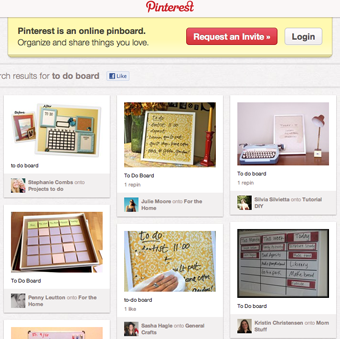The new “to-do” list
Permanent link All Posts
I have a love-hate relationship with my to-do list.
I still keep my tasks for work written down on an old fashioned notepad—for some reason, it’s much more satisfying to actually cross something off with a pen, rather than just deleting text from the notepad application on my iPhone. I hate it when the page gets too full and messy, and when my list of tasks seems never-ending and overwhelming. But I love the feeling I get when I’ve crossed off enough items that I’ve earned the right to turn the page, to have a fresh start.
You’re probably thinking it’s kinda weird to reflect so in depth on something like a to-do list, right? It’s not something I do often, but there is a reasonable explanation here.
I spent the past two days getting trained in Scrum—have you heard of it?
Aside from being an unfortunate sounding word—someone told me it sounded like a cross between a dirty word and the grime you clean off your shower—Scrum is a method of agile project management that is used most often in software development, but can be used in other fields as well. (Side note: for those of us who don’t work in IT, apparently Scrum is growing in popularity among advertisers and wedding planners!)
The process focuses on self-organization, team work and promotes efficiency through regular meetings and predefined roles. I’ll spare you all the details, but there are words like backlog, sprints, iterations. impediments, relative estimation, retrospectives, epics, and the best part? Someone gets to be the ScrumMaster!
One important item used in Scrum, and agile project management in general, is an oversized board, where one’s Scrum team keeps track of their progress by physically moving tasks around a board divided by tasks to do, tasks in progress and tasks completed.
During our training, the presenter said people often use variations of this methodology to manage household tasks and errands, which seems like a pretty good idea to me.
Ironically, this concept, which is obviously meant to make employees more efficient and productive, made me think about Pinterest, which could be seen as the total opposite to productivity (but great inspiration for creativity!). I only joined Pinterest—a virtual pinboard that allows us to share things we find on the web with our networks—a few weeks ago and I haven’t done a lot of pinning myself yet, but I can see how this could be great for finding gift ideas and recipes, perfect for wedding planning and so much more. I even did a search for “to do boards” on Pinterest and came up with a slew of creative ideas.
In a way, in pinning cute outfits, inspirational quotes, places we’d like to go and home decoration ideas to Pinterest, we are creating our dream to-do lists. Pinterest has managed to turn the dreaded to-do list into something magical, a world of endless possibilities, where our imaginations can run wild. But at the same time, providing a platform where we can organize these thoughts and dreams into categories, making them seem all the more attainable.
This makes me wonder, why are we so fascinated with organization—practical, virtual and otherwise—these days? And with all these options, maybe it’s time I reevaluate my old trusty notepad technique and opt for an upgrade.



.jpg)



